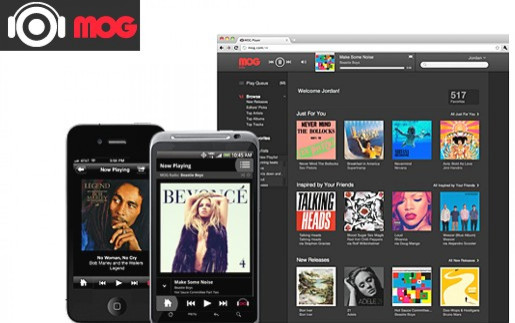HTC Beats Set to Acquire MOG

Beats Electronics, majority-owned by HTC, is close to acquiring digital music subscription service MOG for an undisclosed sum, according to an anonymous source familiar with the matter.
The Deal Could be Announced within the Next Two Weeks
The company has reportedly been negotiating with Beats for weeks and the deal could be announced within the next two weeks. A spokesman for MOG declined to comment, as did a spokesman for Beats. HTC dismissed previous reports as rumors and speculations. Last month, following reports that MOG is struggling in the highly competitive music subscription business, MOG CEO David Hyman denied the company was actively pursuing a buyer.
According to the undisclosed source, MOG has raised more than $33 million from investors, and the price being negotiated will exceed the investment. Earlier this month, Hyman said the company has more than 500,000 active users, but did not mention how many are fully paid-up subscribers. He added that nearly 5,000 new users per day have tried out the site since integrating the music service into Facebook last fall.
HTC Owns Controlling Stake in Beats
HTC took a majority stake in Beats last year in a $300 million deal, aiming to integrate music features such as online radio into its smartphones, to add a competitive edge against the iPhone and rivals on the Android platform.
Buyers of Beats' popular Beats by Dr. Dre headphones, HTC smartphones or HP laptops (Beats has a separate partnership with Hewlett Packard Co.) could get MOG integrated or as a discounted offer.
Founded in 2005 by Hyman, MOG relies only 50 percent on online subscriptions. The other 50 percent consists of its advertising network - MOG Music Network, which places ads on more than 1,700 music sites, returning more than 60 million unique visitors a month, according to comScore data.
Rhapsody and Spotify, Powerful Rivals
MOG operates in a highly competitive market, alongside more popular names such as Spotify and Rhapsody. Such companies aim to convince music lovers to give up lifetime habits of buying downloads or physical CDs and subscribe, instead, to unlimited access to songs and albums streamed over the Internet to a user's PC or mobile device. These subscription services typically charge roughly $10 a month for access to millions of songs. Music labels had been keeping their fingers crossed hoping that such services would be more effective in beating piracy and beating the dominance of Apple's iTunes Music Store, which accounts for about 70 percent of music sales in the U.S.
(reported by Alexandra Burlacu, edited by Surojit Chatterjee)
© Copyright IBTimes 2024. All rights reserved.




















